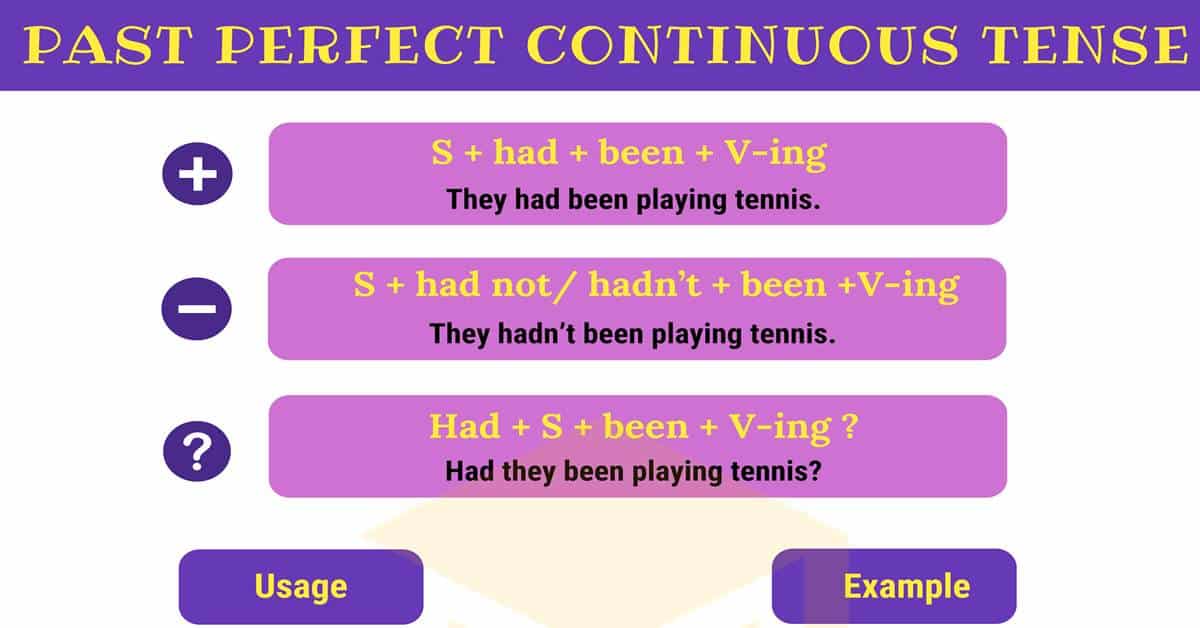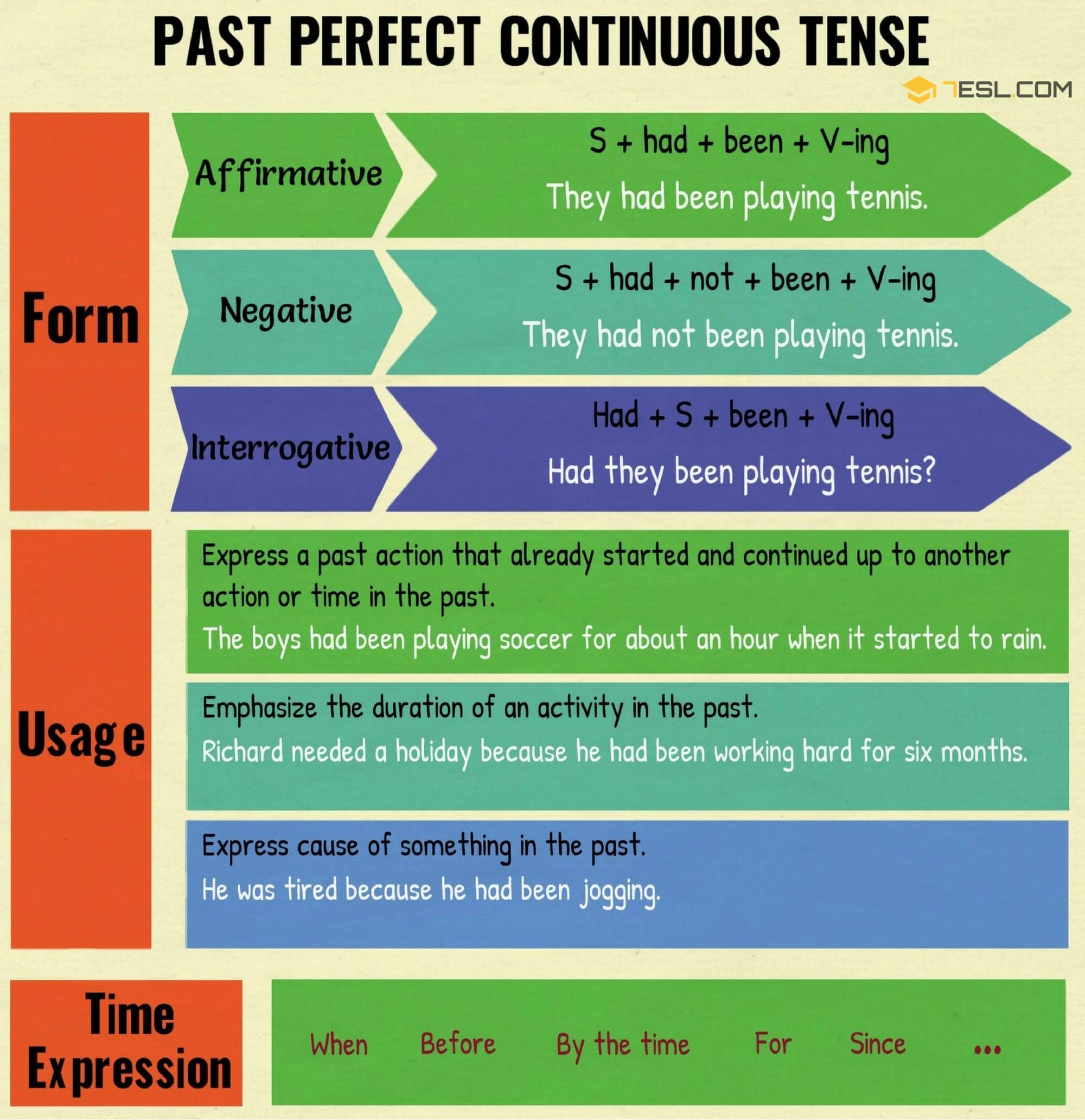Past Perfect Continuous Tense! In this section, we are going to be looking at how the past perfect continuous tense works and what rules we must follow when using it. This will provide you with the knowledge you need to create much more grammatically correct sentences.
Past Perfect Continuous Tense
You might hear this tense being referred to as the past perfect progressive tense but this is not as complicated as it might first appear. The past perfect continuous tense is used to talk about an event which began in the past and continued in the past. This is a similar concept to the present perfect continuous tense.
The Past Perfect Continuous tense combines perfect progressive aspect with past tense. It is formed by combining had (the past tense of auxiliary have), been (the past participle of be), and the present participle of the main verb.
Positive Sentence:
S + had + been + V-ing (present participle) +…
Example:
They had been playing tennis.
Negative Sentence:
S + had not/ hadn’t + been +V-ing (present participle) +…
Example:
They hadn’t been playing tennis.
Question Form:
Had + S + been + V-ing (present participle)?
Example:
Had they been playing tennis?
How to Use the Past Perfect Continuous Tense?
Learn how and when to use the Past Perfect Continuous Tense (Past Perfect Progressive) in English with helpful grammar rules, examples and ESL worksheets.
The Past Perfect Progressive is used:
- To describe a past action, already started and continued up to another action or time in the past
Example:
The boys had been playing soccer for about an hour when it started to rain.
- To express the duration before something in the past
Example:
Richard needed a holiday because he had been working hard for six months.
- To describe the cause of something in the past
Example:
He was tired because he had been jogging.
Adverbs of Time
- When
- Before
- By the time
- For
- Since…
Past Perfect Progressive Tense Chart | Image










0 Comments